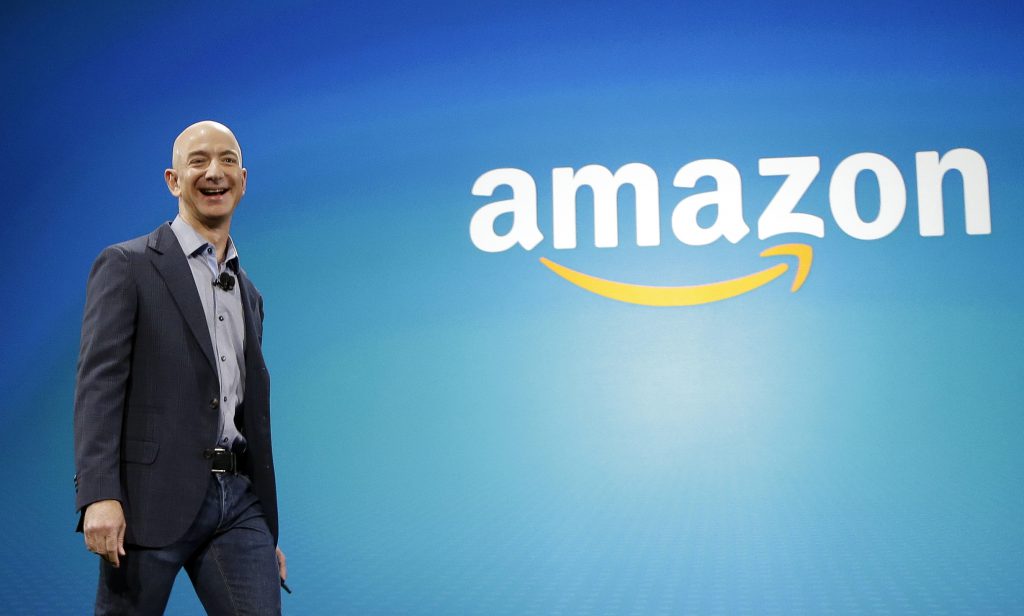
In the race to the future, do startups need to focus more on the now? Source: Shutterstock
Are startups too obsessed with the future?
MANY of today’s entrepreneurs and startups are obsessed with the future.
While there is definitely nothing wrong with staying ahead of the curve and working towards providing solutions for the future, what about focusing on the now?
It’s easy to get caught up in the future when innovation seems to be the secret recipe of tremendous success. Predicting the next trend, “revolutionizing” an industry, and sparking change – these are common goals of today’s startups.
For Jeff Bezos, one of the richest business leaders in the world, focusing on what won’t change rather than what will change in the future, has been the center of his strategy for the Amazon empire.
According to the multi-billionaire, a successful business is one that focuses on building a strategy around the things you know are stable in time.
“I very frequently get the question: ‘What’s going to change in the next 10 years?’ And that is a very interesting question; it’s a very common one,” said Jeff Bezos, Amazon CEO.

Amazon CEO, Jeff Bezos. Source: AP
“I almost never get the question: ‘What’s not going to change in the next 10 years?’ And I submit to you that that second question is actually the more important of the two — because you can build a business strategy around the things that are stable in time,” added Bezos.
The premise here is that by focusing on things you know will not change, such as consumers desire for convenience, speed, and low prices, you will build a foundation for success.
At a start-up conference held by Cradle Buzz today, ST Chua, principle of Sun SEA Capital, agreed with Bezos that in the drive towards the future, startups must focus on things that don’t change.
Chua gave seven examples of “unchangeable” areas that are in need of improvement.
- Financial inclusion
- Mobility
- Life expectancy
- Trust
- Access
- Education
- Environment
According to Chua, the problems presented in these industries can be addressed by the following techniques:
The three horizon framework
McKinsey’s Three Horizons of Growth is a proven model to help businesses focus on growth and innovation. The strategy framework requires you to categorize your goals in three different ‘horizons’
Horizon 1: Maintain and defend core business
Activities that are more closely aligned with your current business
Horizon 2: Nurture emerging business
Taking what you already have, and extending it into new areas of revenue-driving activity
Horizon 3: Create genuinely new business
Introducing new elements to your business that don’t exist today.
This framework helps businesses to bridge the gap between the innovation of tomorrow versus the reality of running a business today.
Cross-learning
It is not enough for companies of today to keep looking within the confines of their own industry.
At the conference today, Chua explained that cross-industry learning and collaboration is needed to boost innovation.

Cross-learning can stimulate innovative ideas. Source: Shutterstock
A growing number of companies are beginning to realize the importance of learning from other companies, industries, or regions and applying them to their own products, processes, and business models.
“It’s just a matter of understanding the pain-points of industries and matching these with possible solutions,” said Chua.
Cross-industry learning encourages organizations to collaborate with a variety of industries, inspiring one another to discover and develop a joint innovation.
So, in the race to the future, businesses should go back to the basics and focus on what doesn’t change, “you’ll be far better positioned to really make use of the new technologies that will come,” explained Chua.
“You see a lot of startups trying to do the flavor of the season, but they need to focus on different horizons.”
READ MORE
- Safer Automation: How Sophic and Firmus Succeeded in Malaysia with MDEC’s Support
- Privilege granted, not gained: Intelligent authorization for enhanced infrastructure productivity
- Low-Code produces the Proof-of-Possibilities
- New Wearables Enable Staff to Work Faster and Safer
- Experts weigh in on Oracle’s departure from adland




